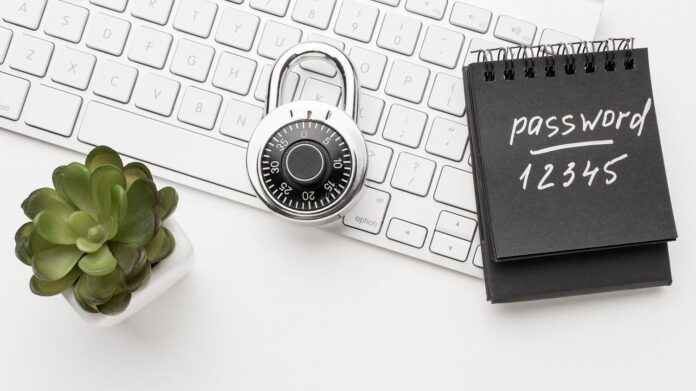1. Set strong passwords and two-factor authentication on your devices
Often, couples turn to technology companies when they are divorcing. These organizations specialize in providing comprehensive security solutions and can offer the following services:
– Protecting all your devices with two-factor authentication;
– Create strong passwords so that no one can access your devices;
– Monitor malicious activity;
– Set up automatic backups so you don’t have to worry about losing important data.
Protecting your devices with strong passwords and two-factor authentication is extremely important during a divorce. This will ensure that your confidential information is protected. It is especially important to know about such companies in case of any legal issues. Tech companies for filing divorce in Michigan online will help you to protect your privacy and will be there for you every step of the way.
| Question | Answer |
| Why would someone want to make their divorce confidential? | Someone may want to make their divorce confidential for a variety of reasons, such as to protect their privacy, avoid public scrutiny, or prevent sensitive information from becoming public. |
| How can someone make their divorce confidential? | There are several steps that someone can take to make their divorce confidential, including: |
| Step 1: Hire a private divorce mediator or collaborative divorce attorney | Hiring a private divorce mediator or collaborative divorce attorney can help keep the divorce proceedings confidential. These professionals can work with both parties to reach a settlement agreement without going to court. |
| Step 2: File the divorce papers under seal | Filing the divorce papers under seal can help prevent the information from becoming public. This may require a court order, and the parties may need to provide a reason for why the information should be sealed. |
| Step 3: Avoid discussing the divorce with anyone outside of the legal team | It’s important to avoid discussing the divorce with anyone outside of the legal team, including friends, family members, and coworkers. This can help prevent the information from becoming public. |
| Step 4: Keep social media and online activity private | It’s important to keep social media and online activity private during the divorce process. This includes avoiding posting about the divorce on social media and being careful about what information is shared online. |
| Step 5: Avoid court appearances if possible | If possible, it’s best to avoid court appearances, as these are typically public record. Hiring a private mediator or collaborative divorce attorney can help keep the divorce out of court. |
| Step 6: Negotiate a confidentiality agreement | The parties can negotiate a confidentiality agreement as part of the divorce settlement. This can help ensure that sensitive information remains private. |
| Step 7: Ask the court for a protective order | The parties can ask the court for a protective order to prevent the other party from disclosing confidential information. This may require a court hearing and the parties may need to provide evidence to support the request. |
| What are the limitations of making a divorce confidential? | While there are steps that can be taken to make a divorce confidential, it may not be possible to keep all information private. The court may require certain information to be disclosed, and there may be limits to what can be sealed or protected by a confidentiality agreement. |
2. Delete all accounts or profiles associated with your ex-partner
Using the same password for multiple accounts does not guarantee sufficient security for your data. Even if you delete one password, the other accounts are still not protected. It is important to delete all accounts and create new ones with different passwords and security settings. It is also a good idea to change passwords to any resources that were previously shared with your partner in case they try to access them without your knowledge.
Having a technology company that provides services such as technical protection during divorce proceedings is a good idea for anyone who values privacy:
– with advice on how to better protect personal data and privacy during a divorce;
– delete any accounts and profiles associated with your ex-partner.
These actions will give you confidence that no one will have access to confidential information and use it against you in the future.
3. Change passwords for all online accounts
Often, when married, couples share passwords to many online accounts. When you divorce, you should change your passwords:
– email; almost;
– banking; and
– social networks.
You should also delete any personal files from shared devices or change passwords.
Technology companies offer services specifically designed for divorces, such as
– secure transfer of account ownership;
– deletion of data related to the other spouse.
Cooperation with the specialists of such a company guarantees the security of your personal information throughout the divorce process. But before you ask for help to protect against tech issues protection during divorce, you should consult a specialist.
4. Watch out for suspicious activity on your credit report
It is important to closely monitor and keep track of all the activity that takes place with your financial information. You need to remain vigilant about:
– any accounts that have been opened in your name without your knowledge;
– Any activity that does not follow normal standards or looks like fraud;
If your credit report shows any suspicious activity, you may need to
– change passwords;
– use two-factor authentication;
– freeze credit.
All this will be investigated and resolved by a technology company for divorce, which will ensure the security of all financial information and protect against potential identity theft. Taking these steps will ensure that your financial information is secure throughout the divorce process.
5. Be careful what you post online
Even private accounts can still be accessed by someone. Therefore, it is best to filter well and reduce the amount of public information you share during your divorce. It’s a good idea to consider hiring a tech law firm to help protect your data during the divorce process. They will help to secure any important confidential information.
Remember that even after the divorce, technical issues may still arise that need to be addressed immediately. For example, your ex-partner may have access to shared accounts or devices and may use the information there to your detriment. It is important to analyze and carefully monitor all your online resources to prevent further problems. By controlling all the information that is posted online and who can access it during your divorce, you can better protect yourself from any problems in the future.
6. Use a secure app to communicate with your lawyer or other professionals involved in your divorce
There are many advantages to using a secure messaging app:
– It provides two-factor authentication, which requires an additional code or password;
– ensures that only those who are authorized to do so can see a particular conversation;
– has automatic logout after a certain time, which keeps conversations confidential even if you forget to log out;
– Gives you confidence that all important agreements during the divorce process will be available only to you and your trusted persons.
Using such a communication app is an important technical tip for divorce. With it, you can make sure that no one has access to confidential information that is discussed during important communications.











